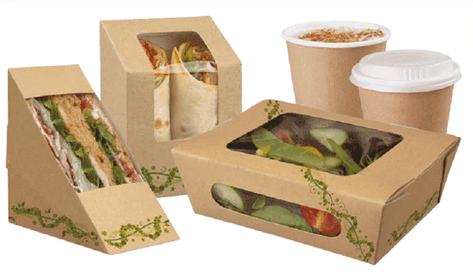Because cosmetics companies are working to lessen their impact on the environment, sustainable packaging has emerged as a top priority for these businesses. The most recent developments in environmentally friendly packaging for cosmetics are discussed in this article, along with the ways in which these innovations are propelling the industry toward a more sustainable future.
A List of HighlightsSolutions that are both recyclable and reusable offered by the Kind Planet CompanyPlant-based packaging is made available
1. Packaging made of amber glass for JunglucksUsing zero-waste packaging is LOLI
2. Dorothy Roffat's packaging style for cosmetics eco-friendly packaging made of bamboo;Options that are both recyclable and reusable are made available by the Kind Planet Company
3. Due to the fact that a significant portion of it is deposited in landfills and oceans, single-use plastic packaging has developed into a major environmental problem
4. To address this issue, businesses such as The Kind Planet Company are working to develop environmentally friendly packaging solutions
5. Cosmetics are packaged in cardboard that has been certified by the Forest Stewardship Council (FSC) and reusable glass jars by the startup company based in the United Kingdom
6. Within the framework of a circular model, customers who return the jars are rewarded
7. Additionally, in an effort to further improve its sustainability, the company is investigating metal lids that can be recycled
8. The Kind Planet Company is at the forefront of a more environmentally conscious cosmetic packaging eco friendly industry through the implementation of initiatives such as reusable and recyclable packaging
11. Plant-based packaging is available from Wellow
12. Plastic tubes are a significant contributor to the waste that is generated by the packaging of personal care products
Startups such as Wellow are providing solutions in response to the growing demand from customers for environmentally friendly options. The packaging of the company's soaps, washes, conditioners, and other products is made from plant-based materials. Their packaging breaks down in a matter of months when it is composted in the backyard. Toxins, aluminum, and parabens are not used in the production of Wellows cosmetics. Through the development of natural and biodegradable packaging, the company demonstrates how the use of plant-based materials can facilitate sustainability. When it comes to packaging, Jungluck uses amber glass. Amber glass is suitable for environmentally responsible packaging because it can be recycled indefinitely. Additionally, it protects cosmetic ingredients by blocking ultraviolet light. A German startup called Junglück is taking advantage of the environmental benefits of amber glass. Amber bottles and jars that are recyclable are used to store the skincare products that they sell. The information about the product is printed directly on the glass, which eliminates the need for paper waste. Also, Junglück uses shipping methods that are climate-neutral and offers rewards to customers who return. Through their innovative use of amber glass and circular incentives, they encourage recycling and the elimination of waste produced.
The environmental benefits of bamboo packaging can be realized provided that consumers and brands choose bamboo packaging over packaging made from petroleum. What the Future Holds for Packaging in the cosmetic packaging eco friendly Industry. Companies that are environmentally conscious are driving innovation and sustainability in the cosmetics industry with regard to packaging. Bamboo, zero-waste initiatives, and recyclable glass are examples of renewable materials that offer significantly more environmentally friendly solutions than single-use plastics. As a result of the growing demand from customers for environmentally friendly products, companies will continue to innovate in this marketplace. The transition of the industry toward circular models and closed loops will be significantly aided by the implementation of sustainable packaging. As the need to reduce waste becomes more pressing, practices that are currently considered to be a niche will most likely become the norm. The companies that are being investigated here are examples of sustainable packaging solutions that have an impact in the real world. Their achievements are illustrative of the path that the cosmetics industry as a whole will take in the future. Entrepreneurial businesses have built momentum to transform packaging, despite the fact that there is still work to be done to improve sustainability.
The industry is getting closer to environmental responsibility and stewardship as a result of their continued efforts.



